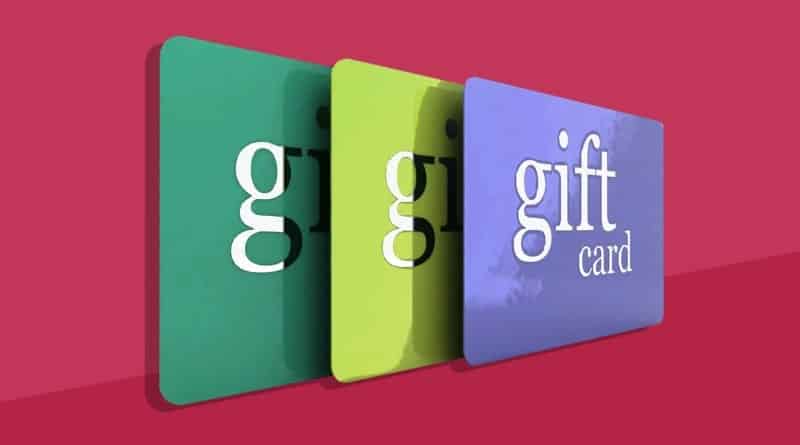Are you struggling with your mortgage payments? Can you pay a mortgage with a credit card? If you have considered this option, here is what you should know.
Paying your mortgage can sometimes become quite a hustle, especially when the income isn’t as good. In such cases, you might be tempted to explore other payment options to ensure that you don’t fall back on the payments. And that’s where some people will consider a credit card.
But can you pay a mortgage with a credit card? The simple answer is yes. However, not in the way you might think. Also, it might not be the best option for you.
So, today, we explore all the different ways you can pay a mortgage with a credit card, as well as the benefits and drawbacks of doing so. Additionally, this piece explores all the factors you should consider before deciding to pay your mortgage with a credit card.
Best Ways to Pay Your Mortgage with a Credit Card

Most mortgage lenders don’t directly accept credit cards for mortgage payments. However, there are some workarounds that can allow you to pay your mortgage with a credit card.
Here are some of the best options:
1. Use Online Third-Party Services
There are several online services that allow you to pay your mortgage with a credit card. But, of course, for a processing fee.
These services will charge your credit card and then send a payment to your mortgage lender via check or bank transfer. One of the most common options here is Plastiq.
Here’s how to use Plastiq to pay mortgage:
- Sign up for a free account on Plastiq. You will need to link your bank account.
- Click on the option to pay your mortgage. Search for your mortgage lender or servicer and enter your account number.
- Enter the payment amount and date for the funds to be delivered. Payments take 2-3 business days to process.
- Input your credit card information. Plastiq will charge this card.
- Plastiq’s processing fee is 2.9% of the mortgage payment. For instance, for a $2,000 mortgage payment, the fee would be $58.
- Confirm the payment details. Double-check that your lender information and amount are correct.
- Plastiq will charge your credit card and transfer funds to your mortgage company.
- You earn credit card rewards on the payments just like any other charge.
The convenience of paying your mortgage through Plastiq costs you around 2.9% as a processing fee. So, make sure to compare this to potential credit card rewards to see if it makes financial sense for your situation. The rewards here are 3% of all your purchases.
The only challenge here is that not every other credit card is accepted. For example, your Discover card will be accepted, as are several types of MasterCard. You should, therefore, confirm your type of card first before choosing this option.
See Related: Best Startup Business Credit Cards with No Credit
2. Buy Money Orders
Another possible option when paying a mortgage with a credit card is using money orders. In other words, you can purchase money orders and use them to pay for your mortgage.
However, this is also not a straightforward process. Remember, you cannot directly buy a money order using your credit card. So, how do you get your hands on these money orders? By first buying a PIN-enabled gift card.
Here are the steps:
- Use your credit card to buy a PIN-enabled gift card. But not any kind of gift card. It should be a debit one. Try Visa cards, as they offer such kinds of gift cards.
- Load the necessary cash on the card. There are, however, some limits. For instance, Visa cards only allow you to load up to $ 1,000 a day or $5,000 a month.
- Now, go to your bank, post office, grocery store, or convenience store and purchase one or more money orders. This will depend on your total monthly mortgage payment amount. Most places charge a small fee for money orders, around $1 for a $500 money order.
- Fill out each money order to your mortgage lender for the specific payment amount.
- Mail the money orders to your mortgage lender, following their instructions on where to send payments. Also, make sure to send well ahead of your due date.
- Your lender will receive the money orders as payment when they arrive in the mail.
One drawback to this method is it requires more time and effort on your part. But it does give you a way to make mortgage payments without extra fees.
3. Use Prepaid Gift Cards

While not all, some lenders allow you to make mortgage payments with prepaid gift cards. As seen above, you can buy these directly using your credit card.
If your lender is one of those that accepts prepaid gift cards, then you are in luck. Simply purchase a prepaid gift card from Visa, Discover, MasterCard, or American Express, and you are good to go.
But like any other option here, you’ll incur a fee for buying the prepaid gift cards with your credit card. The fee will mostly fall between $5 and $10.
The only drawback with prepaid gift cards is that they have limits. Most of them have a maximum limit of $500 to $1,000. This means that you’ll need to buy several cards if your mortgage payment is more than this. You should also contact your lender to confirm if they accept split payments.
What to Consider Before Paying Your Mortgage with a Credit Card
Can you pay a mortgage with a credit card? Yes! That one we have confirmed.
However, there are several downsides and risks you should consider before doing so. These include:
- High processing fees: Services like Plastiq charge a 2.9% processing fee to pay your mortgage through their service. Also, buying gift cards will cost up to $10 per card. This can add hundreds of dollars in costs each year.
- Rewards may not outweigh costs: The rewards you earn from paying your mortgage with a credit card need to exceed any processing fees and costs. Only through this could the strategy make financial sense. So, do the math.
- It can increase debt: Charging your mortgage to a credit card can quickly add to your credit card debt if you don’t pay off the balance each month. This leads to higher interest charges and more debt over time.
- Credit card limits: Most credit cards have limits on how much you can charge monthly. Therefore, you’ll need an available credit line higher than your monthly mortgage payment.
- Credit inquiries and debt ratio: Applying for cards with high enough limits can generate credit inquiries and increase your overall utilization ratio. These two actions can lower your credit score if done excessively.
As you can see, it’s important to fully understand the risks and do the math before paying your mortgage with a credit card. It might seem like the best way out of your current mortgage payment struggle, but it might also be your financial downfall.
Pros and Cons of Paying Your Mortgage with a Credit Card
If you decide to pay your mortgage with your credit card, here are the benefits and drawbacks that come with it.
Pros
- Earn credit card rewards on large mortgage payments
- Take advantage of sign-up bonuses by getting new cards
- It is convenient to have housing costs on autopilot each month
- Can help meet minimum spending requirements for bonuses
- Allows you to keep cash liquid rather than tying it up in payments
Cons
- Processing fees eat into any rewards earned
- Mortgage payments contribute to credit card debt
- Charging too much mortgage debt impacts credit scores
- Credit inquiries from new applications hurt credit
- It is easy to overspend and overextend your credit
- Logistically, it is more difficult than direct mortgage payments
Comparing the benefits against the drawbacks allows you to make the most prudent decision here. Remember, the goal is to pay the mortgage without digging yourself an even deeper debt hole.
See Related: Charge Card vs Credit Card: 5 Main Differences
Should You Pay Your Mortgage with a Credit Card?

So when does it actually make sense to put your mortgage payments on a credit card? Here are a few scenarios where it may be beneficial:
- You need to meet minimum spending for a huge new credit card sign-up bonus.
- The rewards you’ll earn exceed processing fees and other costs.
- You have excellent credit and can get approved for cards with high enough limits.
- You need extra time to make more money to cover the payment. Credit cards usually offer you a 21-day grace period, which might be all that you need.
However, for most people, the risks and downsides of paying a mortgage with credit cards outweigh the potential rewards. You are taking on high-interest credit card debt in place of low-interest mortgage debt. This is extremely risky and not recommended for anyone who carries balances month to month.
The math has to make sense, so run the numbers accounting for all fees, rewards valuations, credit impacts, and your unique financial situation. For many homeowners, it is smarter to keep the mortgage and credit card accounts separate.
How to Get Help When Falling Behind on Mortgage Payments
Falling behind on your mortgage payments can happen. This could be due to job loss, reduced income, or large emergency costs. If you find yourself struggling to make payments, take action right away to get back on track.
Here are some tips:
1. Identify the Problem
Take an honest look at your finances to understand why you are having trouble making mortgage payments. Were you relying on credit cards or high-interest debt? Did you face an unexpected emergency like medical bills or home repairs?
Did you have a change in income or employment status? Figuring out the root cause will help you address the issue. For instance, if it’s reduced income or an unexpected emergency, you can always find ways to make extra money and cover the gap with time.
2. Talk to a Housing Counselor
Non-profit housing counselors can help assess your situation, work with lenders, and identify assistance programs you may qualify for. Look for HUD-approved counseling agencies for reputable, unbiased guidance.
HUD (Housing and Urban Development) counselors can often negotiate alternatives like repayment plans. Also, you might even qualify for other financial assistance programs like the Hardest Hit Fund.
3. Reinstate Your Loan
If you can catch up by paying back missed payments, plus any penalties or fees, you may be able to reinstate your loan and avoid foreclosure. This may require borrowing money, so discuss options with your housing counselor.
Reinstating your loan is a great option if you are back on your feet and can now pay the mortgage. It usually happens if you have had a strained source of income, but things are now looking up.
4. Talk to the Lender
Another effective option is contacting your lender and explaining your situation. They are in a better position to find a solution that allows you to keep paying your mortgage and avoid foreclosure.
For example, many federal loans and banks offer forbearance plans or loan modifications to lower payments. Therefore, be proactive in asking for help and don’t be afraid of it.
5. Consider Applying for Bankruptcy
When things get really out of hand, you can file for bankruptcy. However, this should be the last option when the worst comes to worst.
Filing for bankruptcy stops foreclosure proceedings and wipes out unsecured debt obligations. However, it remains on your credit history for 7-10 years. This means that while the debt might be forgiven, your credit history will be gravely affected.
Look for a reputable bankruptcy attorney to discuss if it could help your situation.
Conclusion: Can You Pay a Mortgage with a Credit Card?
While it is possible to pay your mortgage with a credit card through services like Plastiq, it is not always the ideal way out. Why? The fees and risks involved might lead you into a more dangerous situation.
This means that paying your mortgage with a credit card only makes sense in certain situations. As such, thoroughly assess your unique situation before putting your mortgage on a credit card.
Also, don’t wait to get help if you are struggling with mortgage payments. Reach out to your lender, housing counselors, and financial advisors to assess all of your options. The sooner you can get back on track, the better.
 Moridom Digital AI | Tech Blog | Daily Tech Updates
Moridom Digital AI | Tech Blog | Daily Tech Updates





